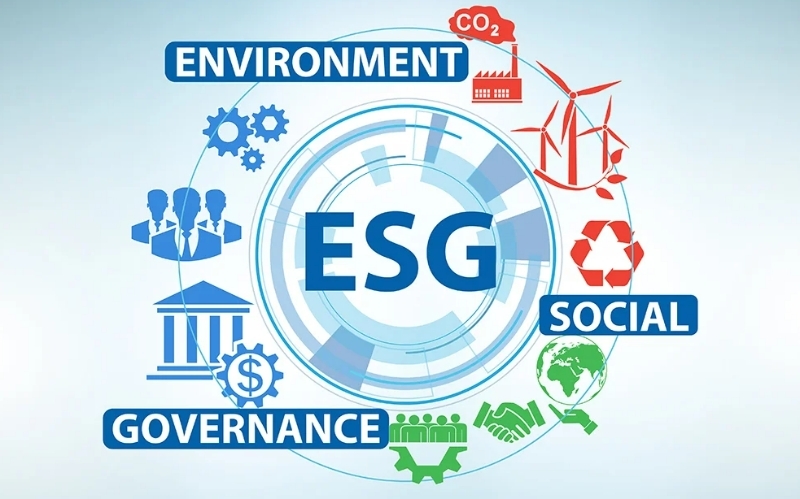ESG: What is Environmental, Social and Governance?

Environmental criteria focus on issues such as nature, carbon neutrality, waste, pollution and treatment of animals. Greenhouse gas reporting and sustainability reporting are now at the top of the list accepted by investors.
Social criteria may include who businesses have relationships with, whether they are sustainable sellers, or whether they help build community with their resources. This also includes the human rights of workers, communities and others in the supply chain.
Governance criteria include keeping accounting records transparent, preventing conflicts of interest among board members, and allowing shareholders to vote on important issues. Other concerns will be management structure, employee relations, and retention and compensation.
ESG rating / ESG score
ESG reporting requires analyzing certain data to create ESG ratings / ESG scores. They are useful for investors and managers to calculate ESG performance and risk management. Providers use different metrics to give ratings so that scores can be calculated differently. Regardless of the provider, hard data provides a realistic view of performance and what results should look like. The Sustainalytics ESG Risk Rating is an example of how well manageable and unmanageable ESG risks can be measured.
While investors are raising their standards on what to invest in, conscious consumers are also raising their standards on how environmentally friendly the products, services and brands they prefer are. The bar for what ESG scores and sustainability standards should be is getting higher every year. Different providers, such as S&P Global, weigh their scores through documents, data, questions and everything else that is important to them to get a clear assessment of a company's ESG criteria.
Verified corporate disclosures, along with other analysis paired with company participation, form the basis of the S&P Global Corporate Sustainability Assessment (CSA). It is considered one of the most comprehensive and accurate sustainability assessments. It first provides the company with access to ESG criteria by using data intelligence to make appropriate assessments. Participating companies are also very involved.
How does ESG investing work?
ESG criteria have now become a very common and sometimes necessary factor for investors to consider backing your company.
Investors will dismiss companies that do not meet ESG criteria.
Your ESG score is important for conscious investors and companies.
If your company does not contribute to the environment outside of its product or service, not only will you be overlooked, but you will also be at financial risk.
Investors look for businesses that aim for better outcomes for society and deliver a return on investment. Not all companies can achieve every UN SDG, but they should have philanthropies that go beyond their products or services, or even more than one. Corporate social responsibility (CSR) and corporate sustainability are now core values in all sustainable businesses. Companies without any external purpose run the risk of not having investor support at all, or at best, having difficulty finding support.
What companies can do if they are interested in ESG criteria assessments is to compile all the data they have about their internal workings with concrete measurements and tracking, such as how Net0 analyzes emissions and gives precise information about the raw data converted. To emissions data. The business will then have the information to enable a financial or investment firm to conduct a full evaluation and undertake the engagement.



 Start Now
Start Now